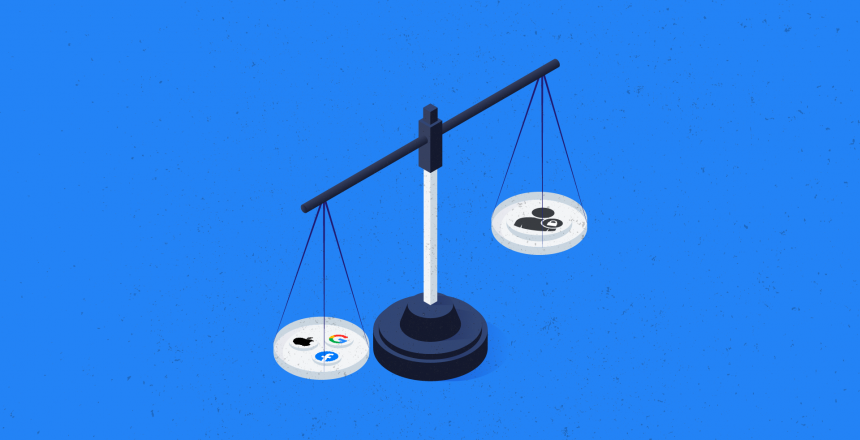The number of consumer data privacy bills increased from 2019 to 2020, with bills considered in at least 30 states and Puerto Rico. This is exemplary of how marketers are being forced to consider continually increasing restrictions regarding privacy each year. The need to reach customers in more personalized ways has continued to grow as well.
The challenge is to meet greater data security requirements while acquiring the necessary insights to communicate with customers in the personal way that they desire. We wanted to find out how marketers are dealing with these obstacles, so we gathered a panel of experts and asked them:
- How they are managing the tension between compliance and personalization
- What they see as the biggest trends, drivers, needs, and frictions exacerbating the status quo
Here is what they had to say.
It’s a balancing act
While consumers increasingly expect personalized communications from brands, marketing leaders believe respecting privacy is essential to building trusted relationships to win in the market today and in the future.
Mustafa Shamseldin described the challenge by saying, “Consumers now expect brands to talk to them on an individual level while protecting their privacy in full. This will accelerate as industries that are good at it will get even better and technology will get better, faster, cheaper on individual identification. And privacy will be even more important.”
Aileen Cahill views it as trading information for an experience when she says, “It’s called ‘Fair Exchange of Value.’ Tell me something about yourself and then the company uses that information to actually serve them better, adding value. This is, in essence, the foundation of a mutually beneficial relationship—not blast marketing.”
Janice Dru-Bennett discussed how adhering to regulations helps build trusted relationships while creating a competitive advantage when she said, “Maintaining compliance and privacy will demonstrate to our customers that we value their info and help with building trusted, synergistic relationships. Those who comply will get ahead of the curve, and those who don’t will be the ones who face friction, unable to keep up with the personalization trend.”
Will compliance limit personalization?
With increasing restrictions on data collection and use, leaders are concerned that compliance could hamper their ability to personalize customer communications in the future.
Jeremiah Bentley points out that most consumers don’t understand what ever-increasing data privacy means in terms of marketing communications they receive, when he said, “There’s fear that once consumers get what they think they want in terms of privacy, they’re going to wonder why/how all the cool specialized offers they got went away. The average person doesn’t really understand (or care) enough about how their data is being used for their benefit or disadvantage.”
Steven Sheiner describes how little consumers understand data privacy when he said, “Most consumers don’t think about privacy. They don’t care that websites or social media track their behavior and monetize to the highest bidder. Until consumers start to care, it will be hard to get the necessary protection in place.”
Lack of regulation consistency creates challenges
In the US, regulations are fragmented and inconsistent from state to state. This makes the execution of marketing programs and regulatory compliance more complex and costly.
Michiko I. Wolcott explains this by saying, “State regulatory differences require 50 different predictive algorithms. The differences are there making them annoying. This all adds cost and effort, not just to be compliant but to actually execute something.”
Aileen Cahill expresses how state-to-state inconsistencies throughout the US make compliance even more difficult when she says, “With General Data Protection Regulation (GDPR) taking the lead and CA following with California Consumer Privacy Act (CCPA), I believe we have a framework to drive an open discussion, but we need a unified approach in the US. Creating a patchwork of state-by-state regulations will be unwieldy and makes compliance and performance marketing ROI ever more elusive.”
Success requires permission-based first-party data a combination of art and science
Success requires permission-based first-party data….brands need to up their data efforts and take more control of managing their consumer data. Partners that help brands have stronger connections with consumers via compliant data relationships are critical.
Conclusion
Permission-based personally identifiable information (PII) with consumer opt-in is critical. With all the work being done by big tech to thwart brand and consumer relationships, first-party data is more important and valuable than ever before.
Data management needs to be a focus for companies. Better data management will lead to better business outcomes. It will accelerate digital transformations and it will provide them with agility to respond to challenges such as pandemics and other disruptions.







